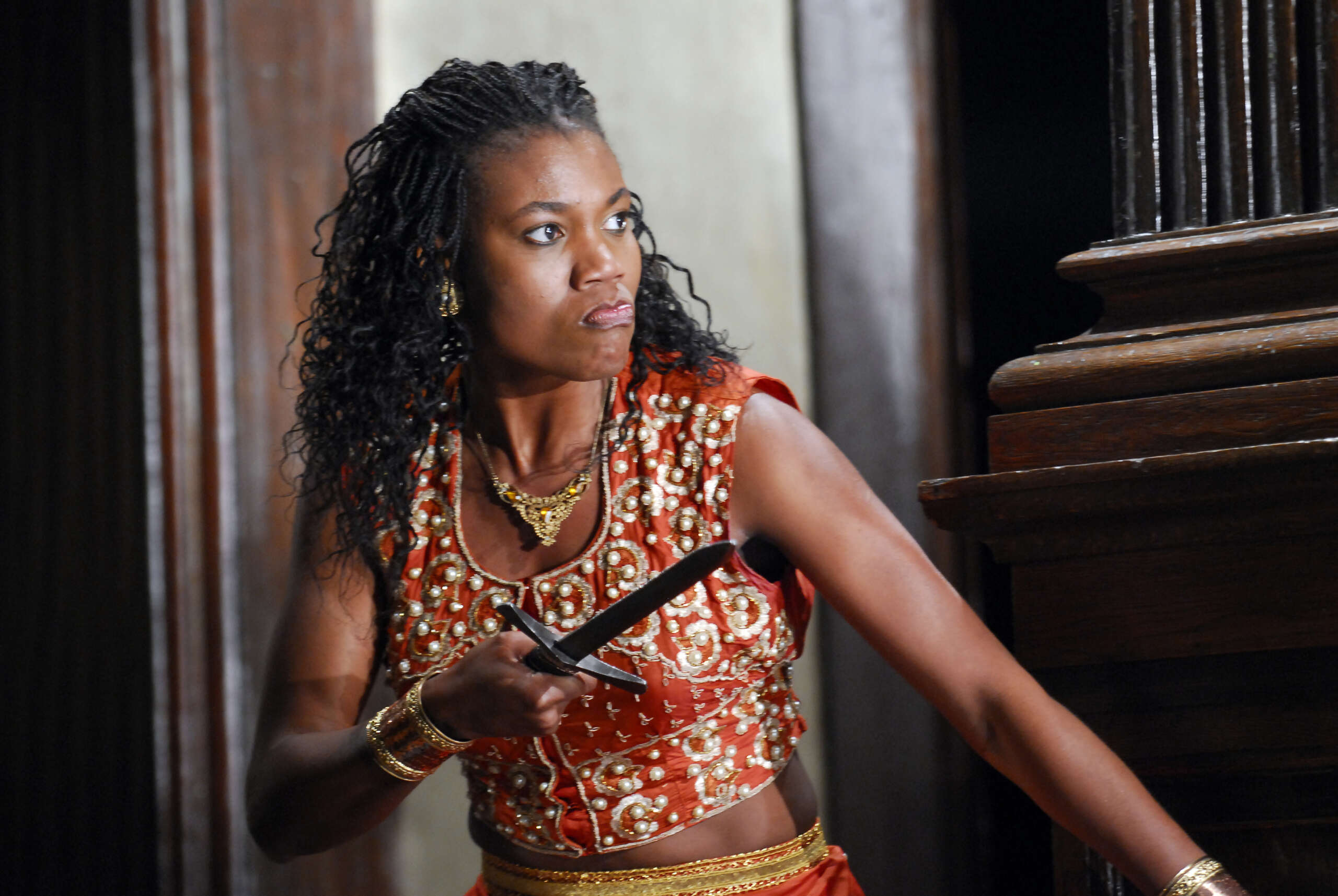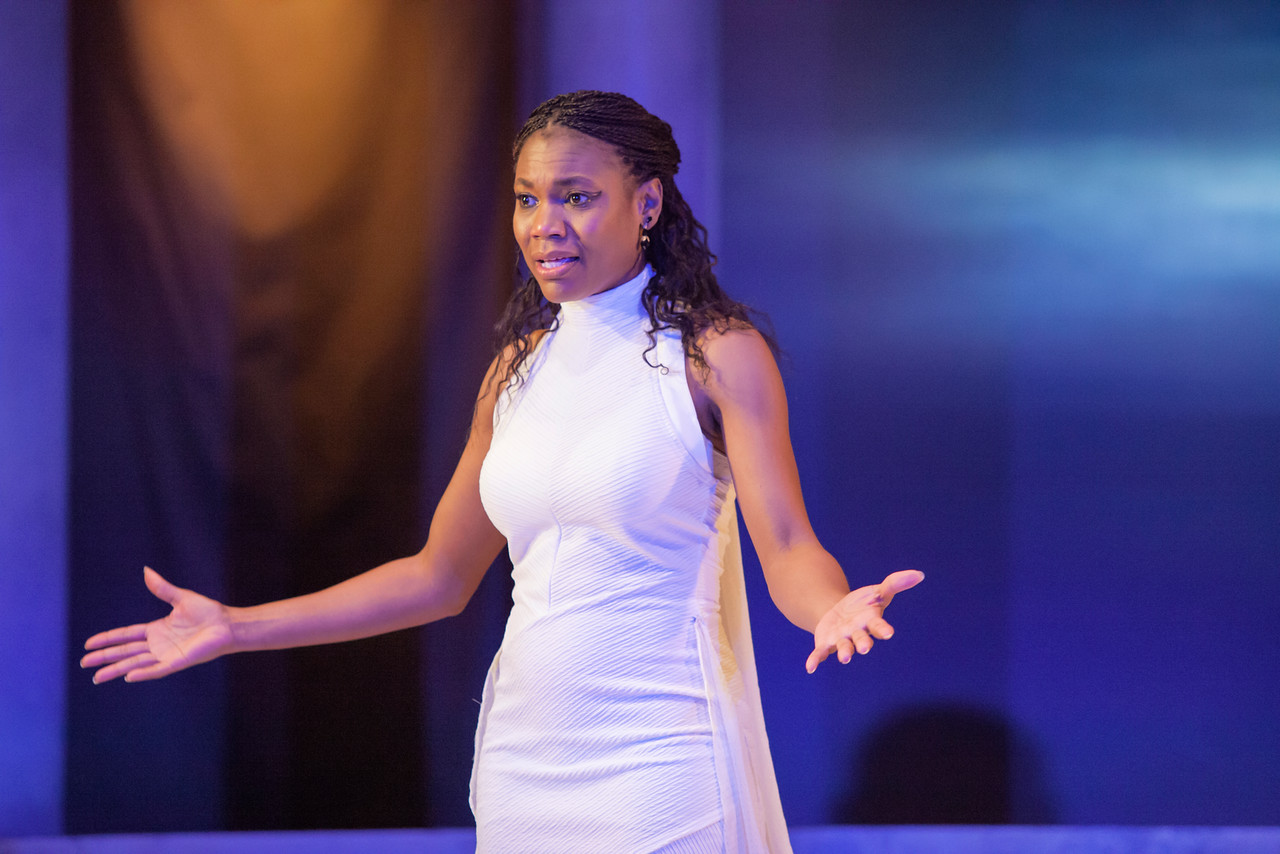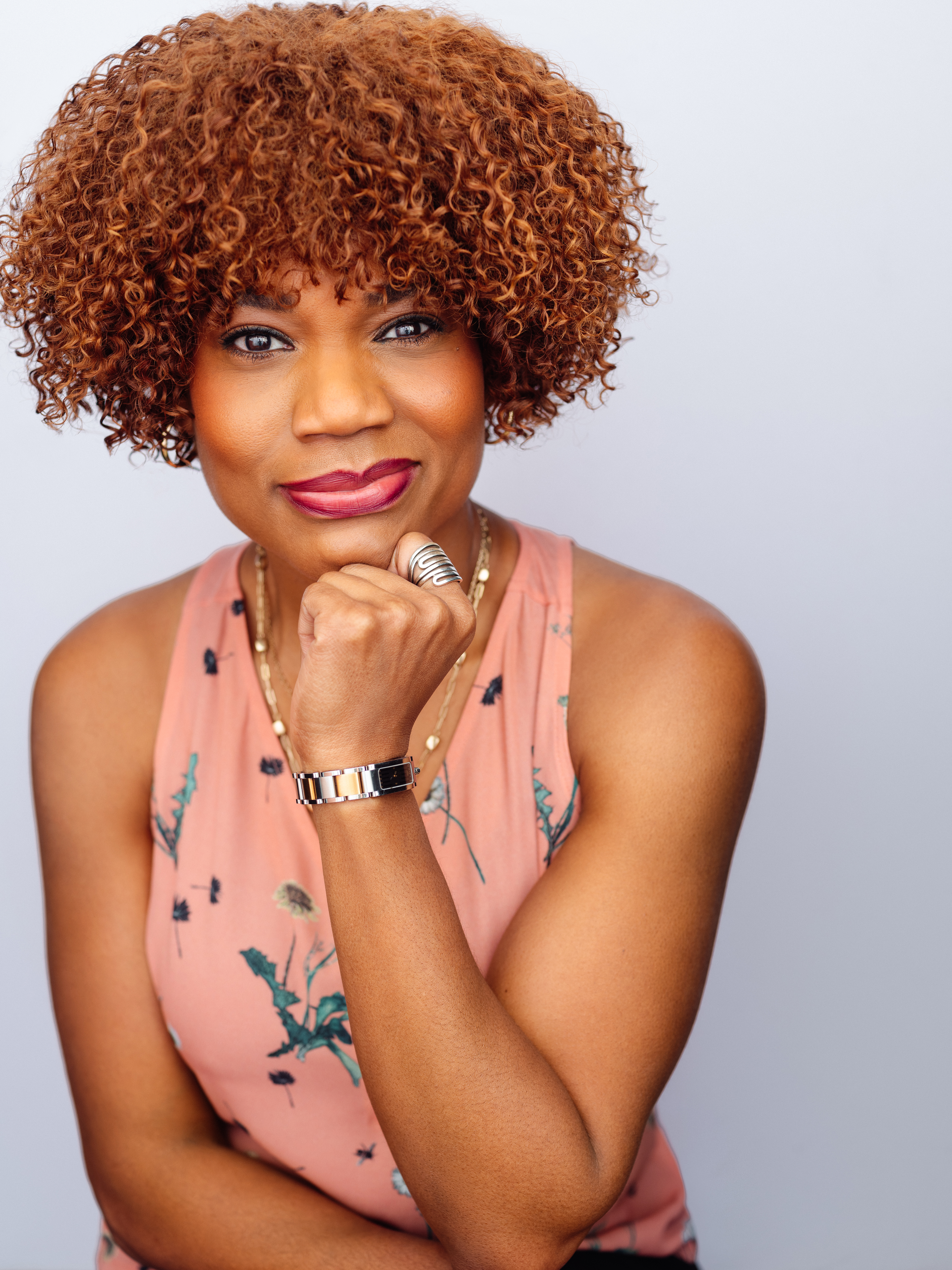Alright – so today we’ve got the honor of introducing you to Chantal Jean-Pierre. We think you’ll enjoy our conversation, we’ve shared it below.
Chantal , appreciate you joining us today. What’s the kindest thing anyone has ever done for you?
I had a generous professor in the theater department of my undergraduate college devote so much of his personal time to my growth as an artist.

Awesome – so before we get into the rest of our questions, can you briefly introduce yourself to our readers.
Sure, I’m a seasoned professional actor who has appeared on television and at regional theaters throughout the country. I began studying acting in high school, somewhat by accident. I was in a piano class when my instructor had to leave in order to assist in the math department. After her departure, our class had to endure a rather boring new instructor with a completely different approach, causing my interest in music to waver. I switched to a different art form—acting—and I discovered I had a genuine passion for it. Plus, my high school drama teacher was a wonderful instructor who shaped and supported my pursuit and—believe it or not—appeared in the classic 1950’s sitcom “The Honeymooners.” During senior year, I devised a covert plan to study theater in college. You see, being a child of an immigrant, the likelihood of a career in the arts is not a viable career option.
I began my collegiate tutelage at Florida International University (FIU) in Miami where I was on a track to study computer science. I struggled to find the courage to move fully forward with my theater plan, but a life in computers felt less exciting plus I kept failing the required computer courses. After two years of misery in computers, I finally built up the courage to take my first Theater Appreciation class. Following that course, I felt certain that theater was my life path, so I switched majors and plunged in full force. I wasn’t without reservations, however. During undergrad, a professional actor from New York graced our stage as Tevye in “Fiddler on the Roof.” During our Q&A session, he spoke at length about the dead times he experienced as an artist—these were the times when he was unemployed. My young self was flummoxed by the idea that a Caucasian actor experienced long periods without an income. I figured if he encountered it, then my situation regarding employment would be far worse as a person of color. This meant I had to think through how I would support myself as an actor if I continued. However, I was not deterred, though, for not only did I love acting, but I discovered that I had a passion for language while studying phonetics at FIU.
Eager, I began to do independent Shakespeare projects in order to hone my skills as an actress. I had an amazing teacher, Wayne E. Robinson Jr., who so invested in my growth and thus, I began to flourish. He was so patient and supportive; each time I helped a classmate with their work, he encouraged me by telling me that I would be a great teacher. Under his tutelage, I learned how to successfully invest in the growth of my students. Unfortunately, Wayne passed away a few years ago but his impact in my life will forever be remembered and his unwavering support throughout my career was deeply appreciated.
Upon graduating FIU, I felt I needed even more training, so I moved to New Jersey to obtain my MFA in Acting at Rutgers University, Mason Gross School of the Arts. My desire to teach continued to grow in graduate school, where I would help classmates with their Shakespeare text or phonetics assignments. So, after graduating from Rutgers, I decided to support my acting career by becoming a professor.
Since then, I have taught at many major university acting programs such as Rutgers University, SUNY Purchase, Brown MFA, Howard University, and the like. I got a reputation for being a tough instructor where students often confused my passion for their success and growth with being mean. Quite frankly to me, I didn’t want them to fail because I fully believed in their potential. It earned me that “tough instructor” label, but I wore it proudly. And as a wonderful symbiotic benefit, my dedication to keeping the information fresh in the classroom for the students sustained my own pursuit as an actress. This acting career can be heartbreaking, so having a reason to persist was definitely necessary.
Unlike most actors who teach, I felt equally passionate about teaching as I did acting, whether on stage or in front of the camera. I feel I was born to do both – teach and act. Eventually, I longed to work more on television, and balancing both worlds became challenging. Former students encouraged me to establish a private acting coaching business, so they assisted in making this venture a reality. Pierre Acting Coach became an avenue where I could continue my desire for teaching, but with mostly professional and mid-career actors. This allowed me more flexibility to pursue more opportunities in television. The major difference between university teaching and professional coaching is my clients better grasp my personal commitment in their success. In fact, my clients tell me that I help them to tap into the emotional journey of the role in far deeper ways. I would say, “that is my secret sauce—to help actors dig deeper to obtain a richer connection to their roles. I truly invest in their success.”
Acting is my way of making an impact on the world. Through the art of storytelling, I help audiences embrace the humanity of the characters I play. When we actors fully invest our hearts in our work, the audience in turn sees aspects of themselves reflected back to them. So, ultimately, the possibility exists for them to realize that we are all more alike than we are different.

What can society do to ensure an environment that’s helpful to artists and creatives?
The arts were ‘VIRTUALLY’ a life saver during the pandemic. It was heartwarming to observe the general public appreciate the arts in new and meaningful ways. The pandemic allowed us to see the profound value of art and stop taking it for granted.
For so many people, the arts transformed into far more than a source of entertainment; they created a vital heart connection between all of us. Think of the novels read, movies streamed, and music listened to as the world sought escapism from the horrors of a worldwide pandemic.
Even though the lockdowns kept us inside and isolated, the arts and entertainment brought us together. Important issues such as public health and racial justice helped to reawaken our sense of humanity and empathy. Our perspectives were expanded and/or encouraged new ways of thinking. Most importantly, these stories held a mirror to our society — just like always – to inspire introspective thought self-evaluation.
Unfortunately, looking back now from 2024, I am not sure if the reawakening during the pandemic was permanent. Theaters are struggling for audiences. Today, it feels as if many people have returned to their older ways of thinking where regard for our fellow citizens is non-existence. Funding for the arts continue to dwindle—so much so, that many theater companies have closed their doors. I encourage people to remember how beneficial and life-affirming streaming a theater show or a movie with your family or children during lockdown was. The arts allowed your very limited home environment to explore so many stories which induced thought-provoking conversations. Similarly, it could’ve provided means to escape reality to feel a joyous story during a grim period in our lives. So I encourage all to remember how the arts sustained you then so now you can express your appreciation and support the arts: donate to a specific theater organization, or become a member by attending live shows, or help fund new movie projects through Kickstarter. The arts are beneficial in so many ways, so please do your part to keep it sustainable for yourself and generations to come.

Is there a particular goal or mission driving your creative journey?
My goal is to use art to do my part in the world–I dare say to cause change in the world. This is important to me as a woman of color because theater has the power to change the minds and hearts of individuals as it permits them to view various ethnic and racial groups differently. Storytelling has the power to make it glaringly clear that we all love, hurt and bleed the same.
Once, a colleague of mine brought his aging father to see one of my performances. He admitted that he hadn’t seen a play with people of color in the cast with his father in a very long time. Apparently, his father possessed negative opinions regarding certain ethnic groups along with their challenges in America. However, after seeing this play, my colleague conveyed how moved his father was by the show and how it had opened his eyes in ways he’d never imagined. This show made such an impact that the difficult conversations he had with his father regarding race or the economically disenfranchised shifted as their discussions became more enriching and gratifying. He and his father did not suddenly start agreeing on everything, but his father was now more open to see different angles on these difficult subject matters. That, to me, is the power of storytelling—it can open one’s mind, motivate others to action, and create community.
Contact Info:
- Website: https://www.chantaljean-pierre.com , https://pierreactingcoach.weebly.com
- Instagram: https://www.instagram.com/chantaljean_pierre/
- Facebook: https://www.facebook.com/chantal.jeanpierre.94
- Linkedin: https://www.linkedin.com/in/chantaljeanpierre/
- Youtube: https://www.youtube.com/channel/UCZFNaIe8jAZaP9w3rmbvP6w
Image Credits
The photographers for the Personal Photo are taken by Markus Robinson (he shot the online acting coaching photograph) , Joseph Moran (took the yellow blouse photo)


